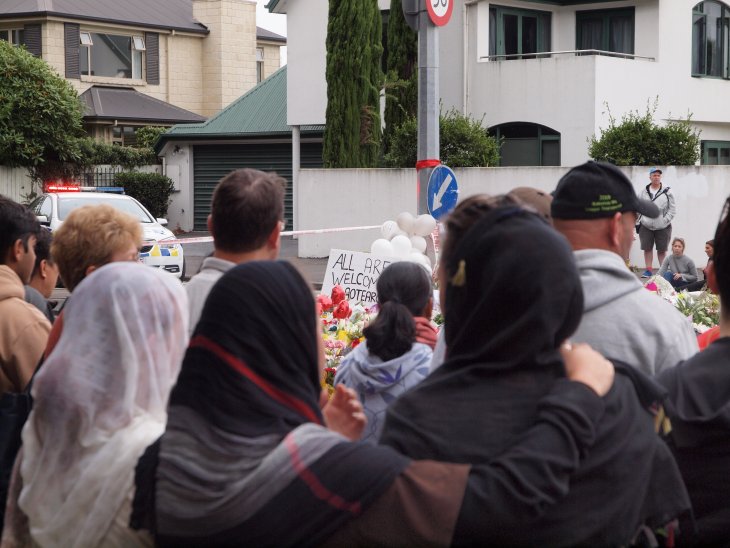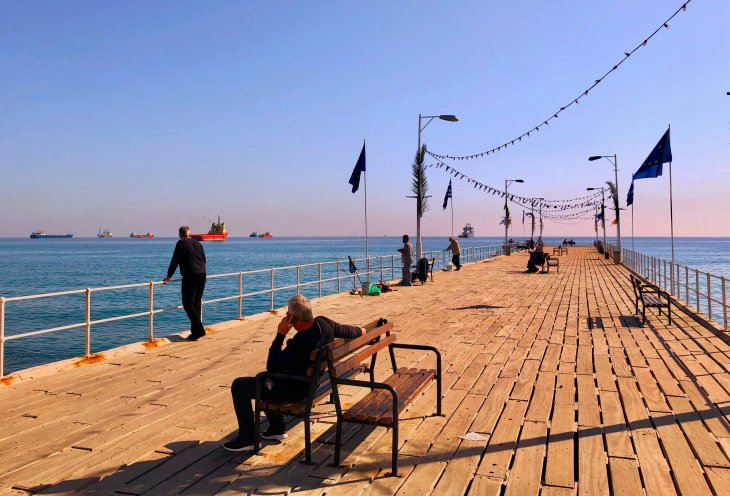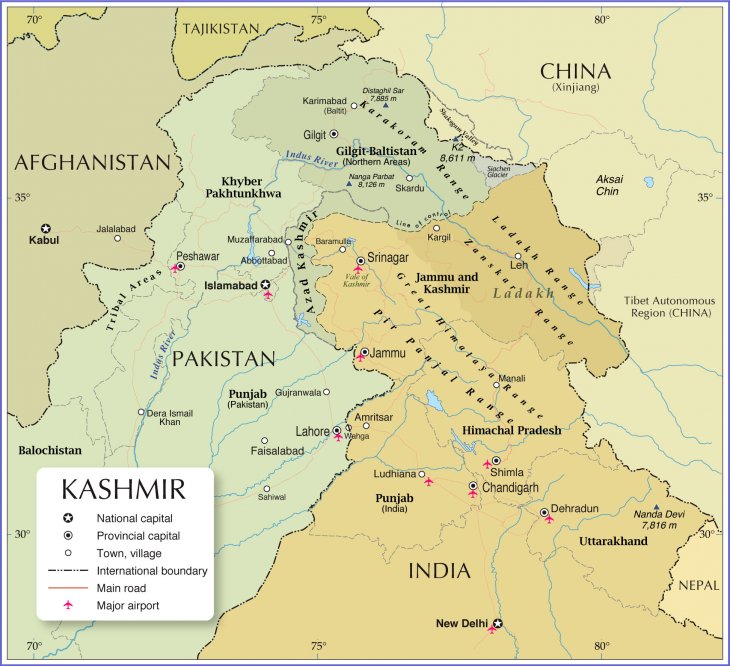
Women in veils console each other in front of a sign that reads “All are welcome in Aotearoa” (Aotearoa being the Maori name for New Zealand) at the Deans Ave floral tribute to the victims of the March 15th terror attacks. Photo: James Dann via Wikimedia Commons.
Known as one of the safest and most isolated countries in the world, New Zealand has experienced its darkest day, a terrorist attack perpetrated by a lone gunman against Muslim citizens in Christchurch in two mosques during Friday prayers. For us, in this antipodean part of the world, it is our 9/11 reckoning.
‘This is not us,’ is the resounding response across New Zealand (NZ) since the March 15th attack.
And yet this is us. While the gunman was an Australian born citizen – and much is being made of this in both NZ and Australia – he was able to live in and plan his attack as a resident of Dunedin, a city that is a five-hour drive to the south of Christchurch. He was able to procure his gun license in November 2017, practice his shooting techniques at the local rifle club and purchase successive weapons online from the Christchurch store, Gun City. He converted one of his purchases into a semi-automatic weapon.
As Kiwi journalist Steve Braunias writes, it would be false to describe this event as New Zealand’s end of innocence.


